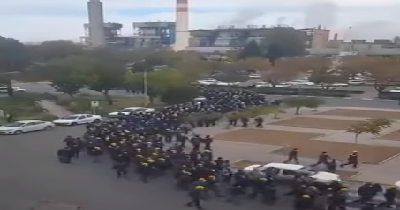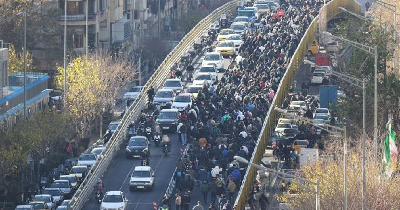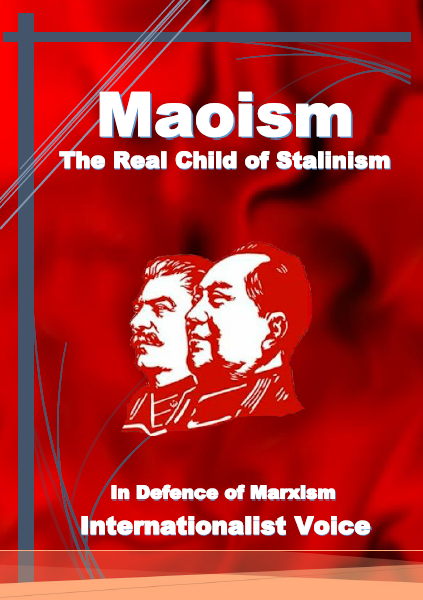Street Protests and the Barbarism of Capitalism: Long Live Class Struggle!
A recent wave of street protests – in Iraq, Chile, Lebanon, Ecuador, Egypt and Iran, to name but a few – have shaken the capitalist world. Public demonstrations occur not only in peripheral capitalist societies, but have also spontaneously manifested in European metropolises in countries such as France, Belgium and the Netherlands. These are the consequence of the current instability of capitalism, which is now at a critical juncture: the fact is that capitalism is now undergoing one of its most significant historical crises. Metropolitan capitalism is attempting to shift the burden of this catastrophe to peripheral capitalist countries in order to ensure they shoulder the most destructive impacts of this ruinous transition.
The living standards of the working class, throughout the world, have been subjected to the daily attacks of the bourgeois. Poverty, unbridled inflation, generalized unemployment, astronomical misuses, environmental problems and air pollution, in a world of decreasing living standards, has created a living hell for the majority of members of the community. In contrast to the parochial minority, with their mythical and aristocratic life, they have created an earthly paradise of the surplus value of the working class.
As a result of rising gasoline prices – which most adversely affected the working class and indeed the whole lower strata of society – a new wave of street protests has swept across the country since Friday 15 November 2019. The Islamic bourgeoisie’s response was unbridled repression enforced by authoritarian policing. There is still no accurate information on the coercion, brutality and persecution inflicted by the Islamic bourgeoisie, but it is known that at least 200 people have been killed and thousands more injured and arrested. By blocking the Internet and disconnecting the apparatus of telecommunications, the Islamic bourgeoisie has tried to disable the organizational tools necessary for successful mobilization and demonstration, whilst also restricting the free flow of information, thereby protecting its repressive regime.
In this protest, the working class has not yet emerged as a conscious and distinctive social class: atomised workers, especially the vast army of the unemployed, have participated in the protests alongside other segments of society. If the material conditions are provided for the social protests, but the protesters do not have a horizon or perspective for their protest, society will explode, and protests will be formed more in the form of a rebellion, uprising or even revolt.
In the autumn of 2018, we witnessed the most glorious manifestation of class conflict in Iran. Following the period of the class struggle of 1978-1980, which at some point shifted from defensive to offensive, the working class emerged as a cohesive social class. The Islamic bourgeoisie, however, cruelly usurped the class struggle of 1979 for their own ends and consequently the Islamic bourgeoisie replaced the royal bourgeoisie: wage slavery continued unabated for our class. Although accounts of those impressive struggles were suppressed, the lessons learned – and personal experiences recollected – contain the potential to positively influence future battles. When the working class emerges as a distinct, strongly self-aware social class in any society, the reactionary tactics of the bourgeoisie are easy to outmanoeuvre.
All the political tendencies of capital from the right to the left, from monarchists to the radical phrase of the left of capital (Worker Communists), from nationalist and patriotic movements to the Mujahedin, proclaim the progress of the people’s movement and all have the same goal. This is that the working class is a supernumerary actor in the populist movements and the repetition of the events of 1979. However, even if something goes according to their plan, it will only lead to regime changes in the framework of the capitalist system. Each of them identifies itself as the only alternative for the successor to the Islamic Republic.
The chained workers!
All eyes are fixed, all hopes invested, in our class. If the dormant giant does not awake, if the working class does not consciously emerge from these protests as a unified social class, if the demonstrations do not open up the possibility of differential class trajectories, if the working class does not form its own neighbourhood, factories, strikes, committees and struggles – and fails to establish other independent bodies and entities – the distinctive struggle of our class will be obscured and its unique contribution will remain indistinct from the wider anti-regime protest.
It is not in our interest simply to overthrow the ruling class; it is in our class interest to destroy the entire capitalist system. The establishment of independent workers’ organisations – in local neighbourhoods or in the workplace – and the propagation of class slogans targeting the capitalist system will enable the hungry, along with the working class, to rise up, all the while remaining mindful of the anti-capitalist nature of their revolt: thus will ensure their interests and collective efforts will be conspicuous and distinct from those of other social classes. The evolutionary process of class struggle, because it is rooted in opposition to capitalism, will not only spread to other capitalist countries but also challenge the very authority of the capitalist state. We just have to fight for our class interests.
Towards Independent Worker Organizations!
Long live class war!
M. Jahangiry
20 November 2019
Download az PDF















